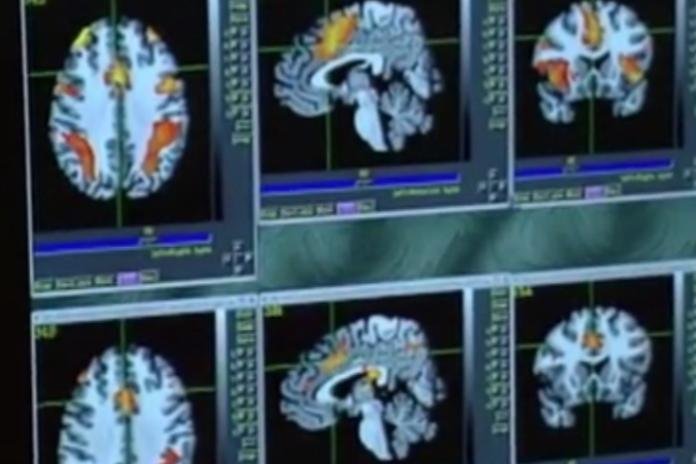Researchers compared MRIs of athletes taken 24 hours and eight days after a concussion, finding that blood flow in the brain continued to be reduced more than a week after sustaining the injury. Photo by Medical College of Wisconsin/Radiological Society of North America
CHICAGO, Dec. 1 (UPI) -- Some athletes continue to have reduced blood flow to their brains after clinical recovery from a concussion, which researchers in a new study said shows the effects of concussion may last longer than doctors think.
Recovery from a sports-related concussion is generally judged by symptoms, as well as with cognitive and neurological tests, but researchers at Medical College of Wisconsin said in a presentation at the Radiological Society of North America's annual meeting that athletes in their study showed significant decreases in blood flow after otherwise appearing to recover from the injury.
While the study did not reveal why blood flow remains reduced so long after a concussion, continuing physiological effects suggest athletes may be getting cleared for play too soon after the injury.
"The nature of this research allows us to study the mechanisms of injury and recovery directly in humans rather than in animal models," said Dr. Michael McCrea, aprofessor of neurosurgery and neurology and director of brain injury research the Medical College of Wisconsin, in a press release. "Our ultimate aim is to better understand the time course of neurobiological recovery after concussion."
The researchers compared 18 football players who sustained a concussion with a group of 19 players who did not have a concussion. Researchers obtained MRIs for the 18 players with concussions within 24 hours of the injury, comparing them with another taken eight days later and clinical assessments taken before the start of the football season.
The players with concussions showed significant cognitive impairment 24 hours after being injured, as measured with the Sport Concussion Assessment Tool 3 and the Standardized Assessment of Concussion. While cognitive scores returned to pre-season baseline levels, the concussed players had significantly reduced cerebral blood flow 8 days after the injury. Players without a concussion had no change in blood flow during the same points in time.
Researchers analyzed the MRIs for arterial blood water as a way to measure blood flow change because of its association with brain function. Although cognitive abilities appear to function properly a week after a concussion, the researchers said they don't know the reason blood flow did not do the same.
"For years, we've relied on what athletes are telling us," McCrea said. "We need something more objective, and this technology may provide a greater measurement of recovery."















